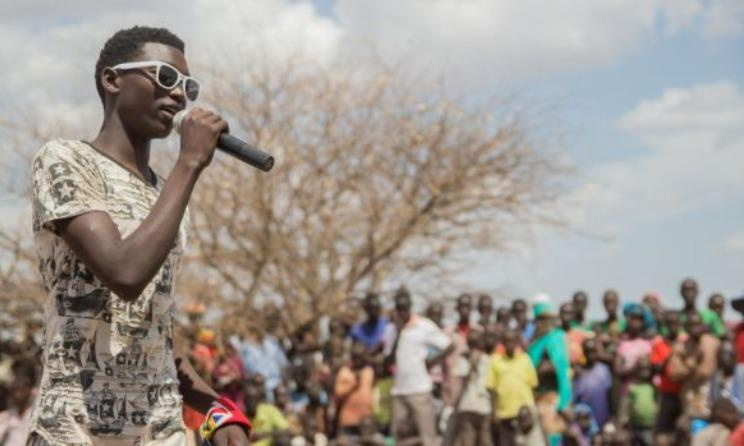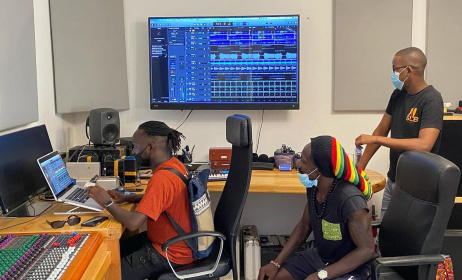Mark LeVine: Closure of Kenya refugee camps will spell end of Kakuma Sound project
Kakuma Sound project co-founder Mark LeVine has urged the government of Kenya to reconsider the intended closure of the Dadaab and Kakuma refugee camps, which host some 430 000 refugees and asylum seekers from about 15 countries.
 A rapper taking part in a talent show at Kakuma Refugee Camp. Photo: Ruairi Casey
A rapper taking part in a talent show at Kakuma Refugee Camp. Photo: Ruairi Casey
LeVine says the closure of the camps would spell the end of his traditional instrument project, which was launched last year. The project donates traditional instruments to musician refugees from Burundi, Sudan, South Sudan, Uganda, Somalia, Ethiopia and the DRC. Fundraising plans are underway to create permanent rehearsal and performance spaces across Kakuma camp’s complex to enable musicians to make music and earn a living from their works.
On 24 March, Interior Minister Fred Matiang’i issued an ultimatum to the UN High Commissioner for Refugees (UNHCR) to provide a plan and timeline for the closure of the two refugee camps. He said there would be no room for further negotiations on the issue.
On 8 April, the High Court of Kenya ordered a temporary stay of the government’s ultimatum, which allowed the UNHCR another 30 days to respond. A day later, the UNHCR shared with the Kenyan government a sustainable and rights-based proposal plan aimed at identifying solutions for the refugees.
“The closure of the two camps would be a humanitarian disaster and impossible to imagine happening in the short time frame that the high court has allowed,” LeVine, who is a professor of history at the University of California, said. “The closure is a recipe for further dislocation and suffering. The musicians will be dispersed and the programme discontinued. At this moment, we have instruments coming from all over East and Central Africa, but with the new orders for closure, we are not sure if they would even get to the musicians.”
Kakuma Refugee Camp is known for its high concentration of musical talent. LeVine said that most of them were born at the camp and did not know any other home.
“The musicians we work with have lived at the camp for decades, with no experience of the world outside,” he said. “They have lost touch with their traditional culture from their home countries and their cultural heritage, and part of that is musical heritage. We hope the government can work something out with UNHCR to ensure that the camps remain open and allow refugees at long last to integrate into the local communities.
“If this is achieved, Kenya will continue to be a source of pride and an example to the world on how to welcome and deal with refugees at a moment when there is a hike in refugee population around the world due to climate change, poverty, war and other massive problems pushing people from their homes.”



























Commentaires
s'identifier or register to post comments